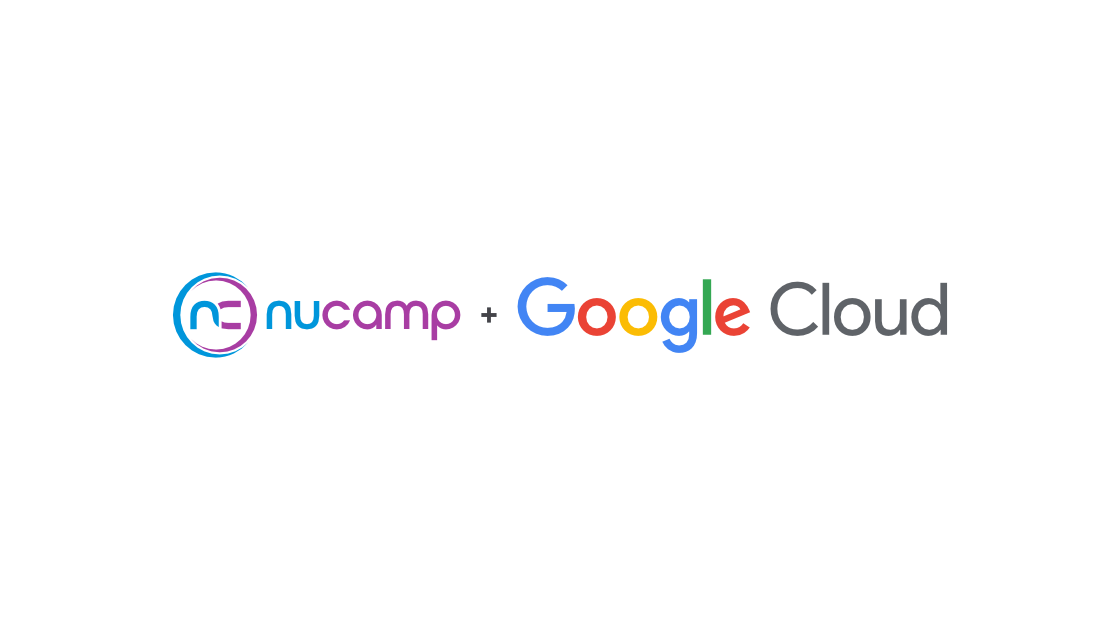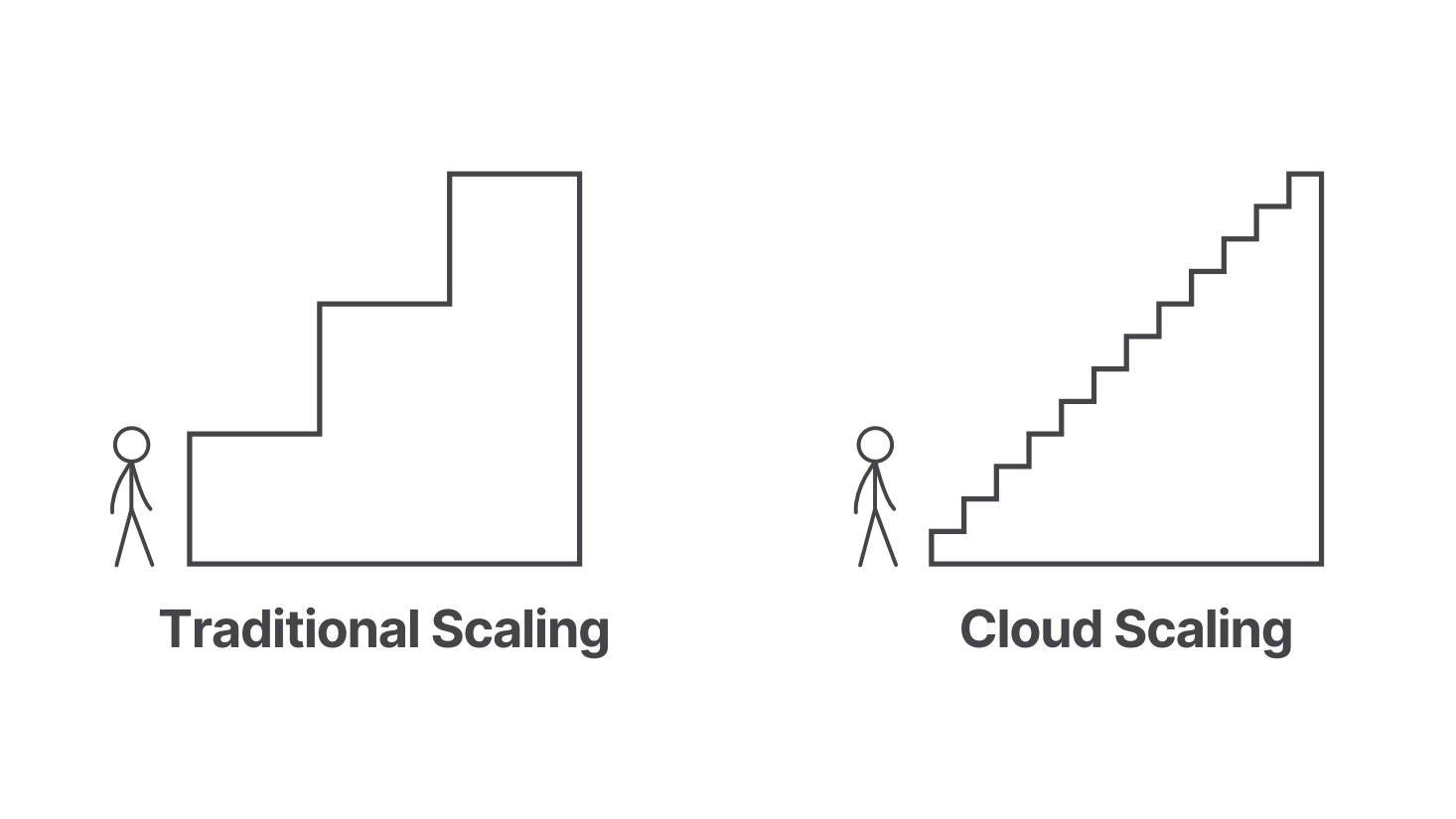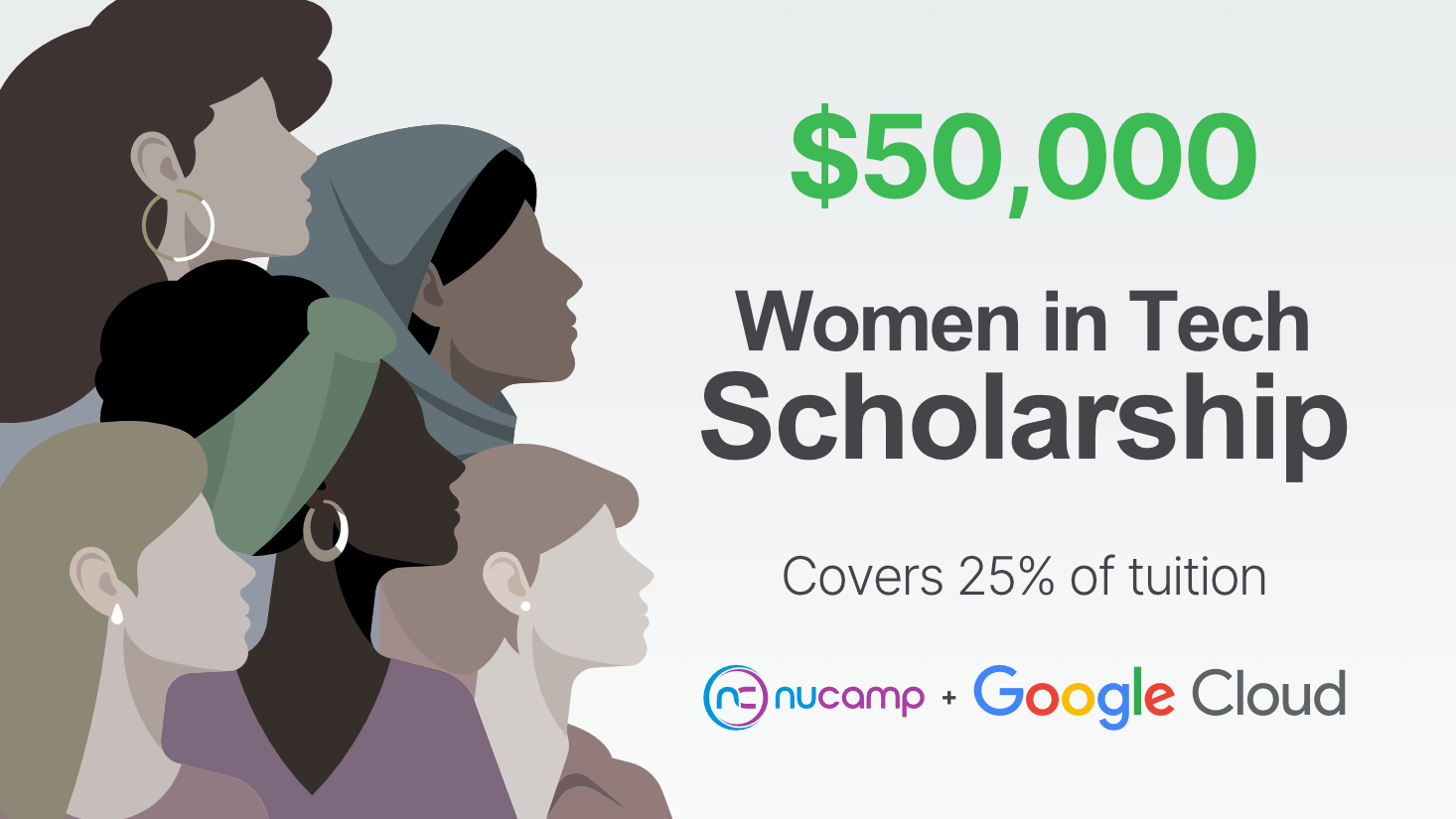Being Job-Ready Means Being Cloud-Ready
Last Updated: December 2nd 2023

Nucamp and Google Cloud are partnering to integrate Google Cloud into the Front End and Full Stack bootcamps to give you job-critical cloud experience PLUS a $50,000 scholarship for Women in Tech.
You might be asking yourself, "How job-critical is cloud experience and do you really need it?"
Before I answer that, let me explain a few basics.
The fundamentals of cloud computing
When we talk about the cloud at a fundamental level, we’re talking about where and how websites and apps are deployed and managed—when they are live and accessible on the internet. In other words, the cloud is a form of hosting.
When it’s time to consider hosting a website or an app, the first question businesses need to ask themselves is, "Will we host it or will we pay someone else to host it?"
In the past, medium and large businesses would set up their own infrastructure (computers, networks, etc.); install the specific tech stacks that they needed on their servers; and host their websites, apps, and services themselves.
This required expertise that may not be central to a business’s core offering, but it was necessary to get things up and running, such as data security, disaster recovery, scalability, and more.
Not anymore.
Companies are now outsourcing all of this to cloud providers with this expertise, such as Google Cloud.

For example, in the old model, if a business was reaching the capacity of how many users a given app could handle, it would have to purchase more hardware and resources to expand its infrastructure and support the growth.
In the new model, they simply log in to their cloud dashboard and click a few buttons to allocate additional resources to the app that the cloud company provides. The cost increase happens on-the-fly.
Cloud isn't just nice to have—it's essential
Despite being in an economic downturn, tech is STILL experiencing 20% revenue growth, which I’ve talked about here.
Growth in tech also means growth in cloud computing. Even if tech were to slow down to dripping molasses or slam on its brakes completely, the demand for the cloud would still grow and employers would still be hiring for it.
What do I mean?
“New workloads deployed in a cloud-native environment will be pervasive, not just popular and anything noncloud will be considered legacy.” By 2025, Gartner estimates that over 95% of new digital workloads will be deployed on cloud-native platforms, up from 30% in 2021. Gartner- Cloud will be centerpiece of new digital experience.
In other words, nearly every app and website on the internet will be handled by a cloud provider by 2025, whereas just last year, only 30% were cloud-native.
That’s a humongous jump in cloud demand.
Therefore, in order for you to be truly job-ready, you will need to know how to deploy and manage your websites and apps—on the cloud.
Why Google Cloud?
A number of reasons:
- Google Cloud’s documentation is thorough and comprehensive, making it the easiest and most efficient choice for aspiring web developers to learn with the least hassle.
- Nucamp.co has been built on Google’s Firebase platform since we started, so we have a lot of experience with it which we share with you.
- Google Cloud is providing 12 months of access to Google Cloud Skills Boost labs, which is a catalog of hundreds of courses, labs, and credentials authored by Google Cloud experts at no additional cost to you.
- Google Cloud is funding a $50,000 Women in Tech Scholarship so that women who want to break into tech can get up to 25% off Nucamp’s tuition, AND, funding will be increased by another $100,000 in 2023.
What's new in the bootcamps?
For the Front End and Full Stack bootcamps, in addition to getting 12 months of Google Cloud Skills Boost labs, you will learn how to:
- Setup a real-world Google Cloud-based HTTP web service to connect your front ends to
- Deploy a bootstrap website using Google Cloud and Firebase
- Deploy a React web app using Google Cloud and Firebase
- Connect your React Native web app to a REST API hosted on Google Cloud
And in the Full Stack bootcamp, in addition to the above, you will learn how to:
- Publish your NodeJS and Express Rest API routes as serverless Google Cloud Functions
- Manage cloud file storage and authentication via Google Cloud Storage and Firebase Authentication
- Leverage the Google Cloud Firestore NoSQL service for your website and app data and perform CRUD operations
Register for the Front End Web & Mobile Development or Full Stack Web & Mobile Development bootcamp today.
Chevas Balloun
Director of Marketing & Brand
Chevas has spent over 15 years inventing brands, designing interfaces, and driving engagement for companies like Microsoft. He is a practiced writer, a productivity app inventor, board game designer, and has a builder-mentality drives entrepreneurship.



